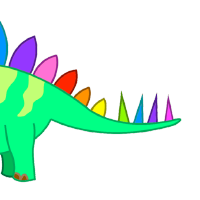00:00:14.370
All right, thank you all for coming to listen to this hopefully ridiculous talk.
00:00:21.329
In August of this year, I was sitting down to watch SummerSlam. SummerSlam is a professional wrestling live event put on by World Wrestling Entertainment (WWE). They do these special events once a month on the WWE Network.
00:00:28.090
I was preparing to watch this on a Sunday. Now, it starts at 7 p.m., and I sat down around 6:30 p.m. So what does one do when one wants to watch four hours of wrestling, but the wrestling has not started yet? One finds more wrestling to watch.
00:00:46.000
The night before SummerSlam, there is another special event from NXT. NXT is where wrestlers go to learn how to be a wrestler in World Wrestling Entertainment; it's the farm league or development territory. I don't watch NXT at all; I don't know who any of the wrestlers are or the storylines.
00:01:06.100
However, my buddy who I watch wrestling with all the time texted me and said, 'You've got to check out this match that happened at the NXT pay-per-view the night before.' He doesn't recommend matches often; we've been watching wrestling for years and kind of know what we like. He specifically mentioned that I should watch this match, so I figured I should.
00:01:25.720
This match is for the women's title between Sasha Banks on the right and Bayley on the left. I don't know these women at all; I've heard of Sasha Banks, but I don't know what she looks like. I've never heard of Bayley, and I don't know anything about them.
00:01:42.429
Going into this match completely cold, at the beginning of a professional wrestling match, everyone comes down to some sort of elaborate entrance. Sasha comes down, acting smug with her blingy outfit; she's called 'The Boss.' She seems kind of jerky, and in line with this, the announcers are saying that she’s a big jerk as she's walking down the aisle.
00:02:11.800
Bailey comes down next; she has this colorful entrance with balloons everywhere. She's very happy, smiling, and running down to the ring, interacting with everyone in the audience, making her seem like a very nice person. The announcers mention that she has attempted to win the championship many times but has been unable to, so this event is her big chance to win the title.
00:02:41.879
That's all I know going in—there's no dialogue, and I don't know anything else. But then the match starts, and within five minutes, I am emotionally invested. When Sasha does things to Bayley that hurt her, it makes me angry; I hate Sasha and just want to see her get defeated every time she does something!
00:03:03.599
Then, when Bailey gets some moves in on Sasha, I'm excited, thinking she's finally going to win the title that she's been trying to get for months and months, even though I had never heard of her ten minutes earlier. The end of the match is quite spectacular—Bayley performs an amazing move off the top rope. Sasha is surprised, Bayley picks her back up, throws her down, and pins her, gaining the title! One, two, three!
00:03:51.849
It’s a very exciting and dramatic conclusion to the match. Men and women everywhere had tears in their eyes, feeling emotionally moved. I'm not making this up; many of us could easily suspend our disbelief and enjoy this match for what it was. I found it interesting because, despite what you might think, wrestling can be better than a lot of novels or TV shows I've experienced.
00:04:56.619
What’s fascinating is that they managed to engage the audience without dialogue or real preparation. They were doing it live in front of people with incredibly simplistic settings. Their characters, while defined rather unclearly, facilitated a way for me to suspend my disbelief and become emotionally invested in the outcome of this ridiculous performance.
00:05:34.380
Now, you probably think wrestling is fake. We don't use the 'f-word' when we talk about wrestling. This is Vince McMahon, the CEO and owner of World Wrestling Entertainment. Here, he is hitting his son Shane with a steel chair. That’s his son; that’s a steel chair; he really is being hit in the head.
00:06:02.250
Now, Vince isn't swinging as hard as he possibly could, of course, but Shane really does get hit in the head. So the things that happen in the wrestling ring are real; these people are genuinely doing this to each other; they've just agreed to do it ahead of time and maybe not to the degree that you'd think.
00:06:50.580
Nevertheless, wrestling is not a real athletic competition. The term 'work' is used in wrestling vernacular—it's a term that comes from old-school carnival speak. They refer to the audience as 'marks,' so they are working the marks.
00:07:09.599
In many ways, wrestling is like ballet. The wrestlers come onto a very simplistic stage without dialogue, relying only on their actions to tell the story. However, there is no intricate enforcement like you would find in professional theater; there’s no one outlining every single beat of everything that's supposed to happen.
00:07:45.210
Wrestlers have to put the match together themselves, and some are very intelligent while others may not be as effective, but that doesn’t matter; they all have some skills to apply in the matches. Each story told in wrestling has characters—those are the wrestlers—and there are rules they abide by.
00:08:44.280
Each story also has a plot, the wrestling match itself, featuring conflict and resolution. The conflict arises as two people want to fight, and the resolution sees one claiming victory. This creation is referred to as 'psychology' in wrestling because the goal is to manipulate the audience's emotions, traversing their feelings up and down, so they buy into it.
00:09:27.870
The setting is two parts: there is a location where things happen and the rules of the world that they're inhabiting. The location is usually a wrestling ring, which is like a boxing ring but set up differently. Sometimes a steel cage is built around the ring for added drama.
00:10:08.580
There might also be variations like Hell in a Cell, where there's a top to the cage, preventing people from leaving and adding a different sound when one is thrown into it.
00:11:03.660
There are even wild matches, like no-rope barbed wire exploding death matches in Japanese wrestling, which certainly adds a layer of strangeness and danger to the spectacle. So, this is the location, but there are also rules.
00:11:41.870
Just like in Star Wars—there are rules of the world in wrestling as well. Ostensibly, they’re putting on an athletic competition, and to win, you can pin your opponent to the ground for a count of three, officiated by a referee.
00:12:37.440
This is the only real aspect of wrestling that stands. Though in actual wrestling you want to pin people, you can also force them into submission from which they cannot escape.
00:12:45.290
In wrestling, you can’t cheat; hitting someone below the belt would get you disqualified. However, if a referee doesn’t see a chair being swung, it doesn’t count.
00:13:35.620
In wrestling, the characters can execute their matches within these rules to manipulate your emotions. These characters are often ridiculous, serious, one-dimensional, or sometimes offensive; they generally fall into two archetypes.
00:14:33.760
First is the hero, known as the babyface. This character is usually larger than life, stands for something larger than themselves, and does the right thing. You want to cheer for them to win. The biggest babyface in history is arguably Stone Cold Steve Austin, who represents the everyman in a world of unearned authority.
00:15:43.319
On the other hand, the heel is the villain. The Iron Sheik, for instance, represents the classic heel—an outsider from a place that Americans dislike; he plays into this, using it to generate heat and make the audience hate him.
00:16:20.680
Heels can get more nuanced than this, though. Triple H is often depicted as a bad guy who comes by his power through marriage to Vince McMahon's daughter. This unearned authority makes him instantly hateable.
00:17:13.560
Heels need to be credible threats; Sasha Banks is a great example of this in her belief that she deserves to win and her constant reminders of how great she is. This creates a desire to see her get defeated.
00:17:47.850
In every story, no matter the medium, there are good-versus-evil conflicts, where the audience roots for the hero. Batman, for example, is often seen as an underdog fighting against impossible odds.
00:18:06.990
The structure of wrestling matches contains shine, cut-off, heat, hope spots, heat again, comebacks, and finishes. This can be found in everything from books to movies.
00:19:26.320
Even if it seems ridiculous, wrestling provides a compelling narrative structure that can be discovered in any storytelling medium. Wrestlers have minimized, distilled, and perfected this crafting process for their unique performance space.
00:20:18.780
In conclusion, if you allow yourself to suspend your disbelief, wrestling can provide an engaging experience that reflects the essence of storytelling. I encourage you to watch Sasha vs. Bayley from the NXT takeover—it truly captures the magic of wrestling.
00:21:12.260
Thank you.
















































































